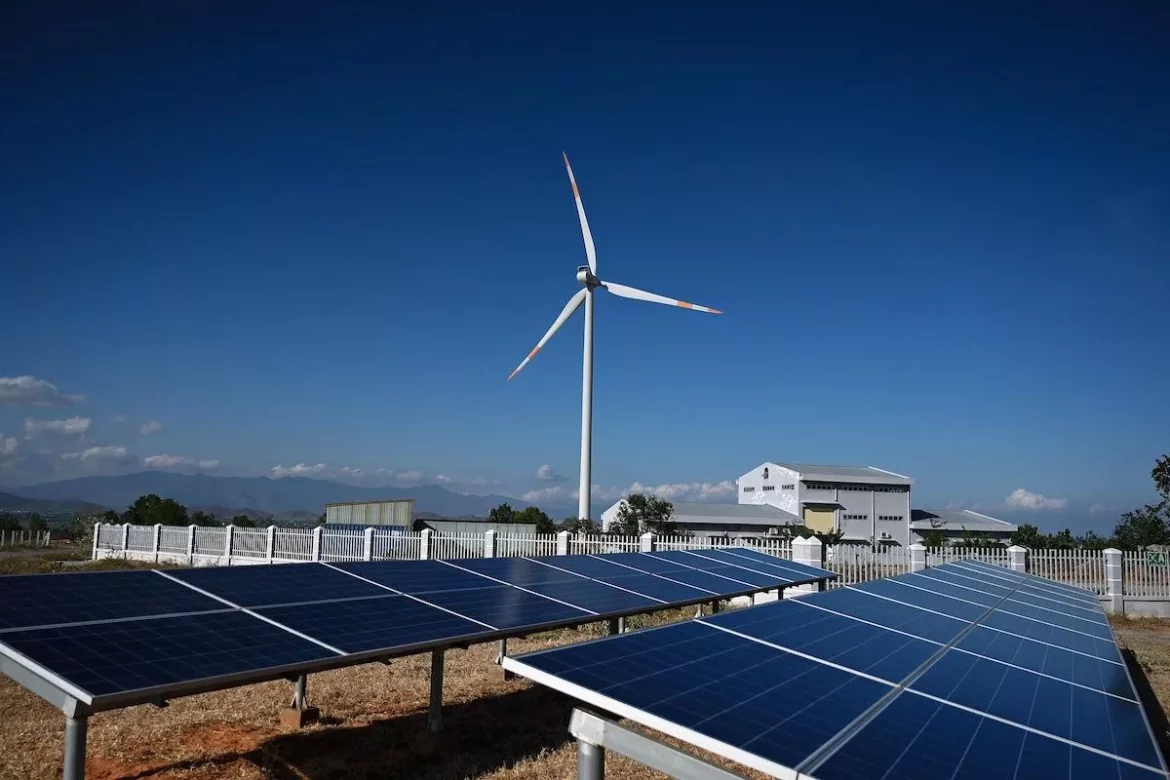Europe is now looking beyond emergency measures to explore long-term fixes to the energy crisis and lay the foundation for the green transition after a turbulent year marked by dwindling gas supplies and skyrocketing energy bills in 2022.
The energy crisis left EU capitals scrambling to patch it up last year, using public funds to shield the most vulnerable households and support businesses.
The EU is now attempting to plug those gaps with long-lasting policies that should open the door to a future powered by renewable energy sources and protect consumers from exorbitant costs.
“We are in a special situation where we have to see how we can get from these kinds of crisis measures to more structural ones,” said Eero Ailio, an advisor at the European Commission’s energy department.
Europe’s actions in 2022 meant it made it safely through this winter, with gas demand dropping 20% and increased solidarity between EU countries.
But the bloc isn’t out of the woods yet, Ailio told participants at a EURACTIV event about the impact of the war in Ukraine on Europe’s energy transition.
Read Also: stakeholders-urge-fg-to-dredge-river-niger-benue-to-combat-flood
“Prices are down now compared to where they were in August, but they are not low,” the official said, adding that uncertainty about prices will remain in 2023.
This year will see several initiatives to build up Europe’s domestic energy supply and reduce the impact of volatile prices. That includes reforming the EU electricity market, completing negotiations on renewable energy and energy efficiency targets, and plans to green industry.
Even before the energy crisis, the EU was working on a historic package of legislation to reduce emissions by 55% before the end of the decade, decrease energy demand and phase out fossil fuels.
The end of 2022 saw most of the emission-related laws agreed and the decisions made show the EU is “still on track” to reach its climate targets, according to Andreas Graf, a senior associate at the think-tank Agora Energiewende.
This year should see the finalization of laws to boost renewable energy and energy efficiency. There will also be a push to complete legislation on improving the energy performance of buildings and decarbonizing gas.
Together, these should help Europe replace pricey, CO2-emitting gas with renewables and decrease its overall energy consumption.
Alongside reducing gas consumption, the EU will need to phase out coal to meet its emission reduction targets.
However, in light of the ongoing volatility of energy prices and the likelihood of further challenges posed by Russia, Europe should reassess how it phases out coal, said Radan Kanev, a Bulgarian lawmaker who sits in the European Parliament’s environment committee.
“We should anticipate a decade of turmoil in the energy markets, which means gas is not a working solution for the levels of coal generation that we have here,” said Kanev.
The Bulgarian lawmaker called for the EU to move coal plants into reserve rather than shutting them down entirely, calling the fossil fuel an “indispensable element of energy security”.
Story adapted from EURACTIV
